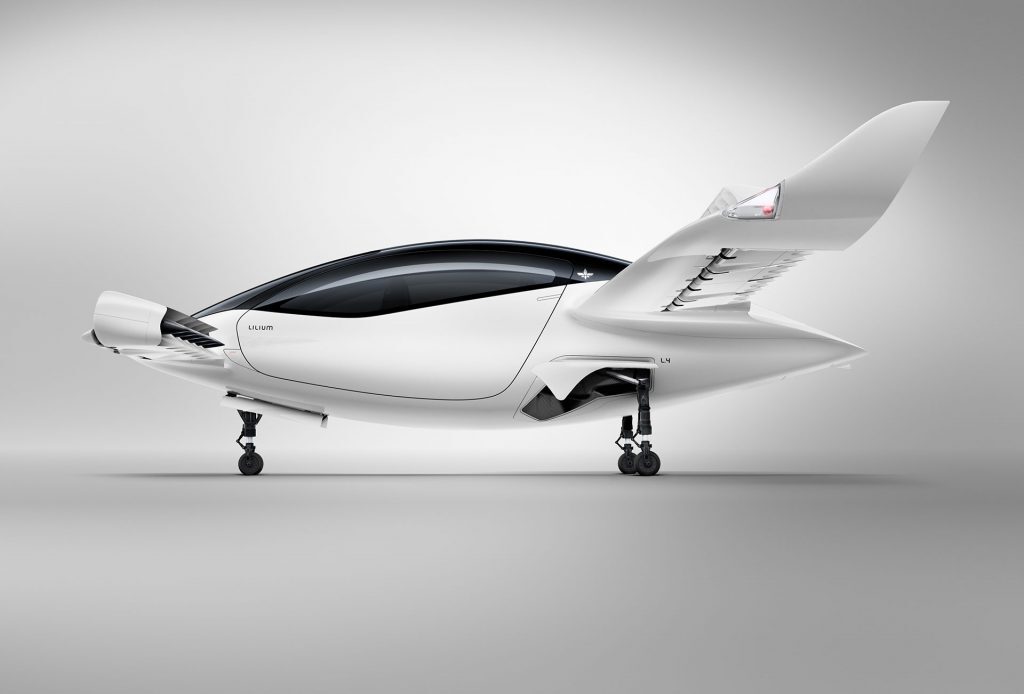If you’ve ever been stuck in Joburg traffic at rush hour or, even worse, Cape Town traffic at pretty much any time of day, you’ll agree that our roads have become too full. But with no sign of population growth slowing, what’s to be done? Elon Musk thinks the future of solving traffic is underground, but others think we need to take to the skies. To this end, a German startup called Lilium this week announced it’s carried out a series of successful test flights which put its automated, all-electric aircraft in pole position to be the first air-taxi provider.
Is it a bird? Is it a plane?
So far, we’ve only seen Lilium’s aircraft take off and land vertically, but it does so with impressive precision. In the video below it takes off vertically, hovers and then lands, but Lilium says it expects its sky taxis will eventually whisk up to five passengers around at a speed of 300km/h (and with a range of around 300km… so an hour’s flying time, then).
Vertical takeoff is helpful when you consider air taxis will probably need to take off in congested, urban areas, where runways would be impractical. Lilium’s all-electric craft manages it thanks to 36 jet engines built into four tilting wings. It’s also ultra-quiet, as you’ll expect from electric-powered motors.
Safety is, of course, of paramount concern. According to the engineers, the 36 engines give the craft plenty of redundancy in case one of them fails. There’s also a “triple-redundant flight control computer” built in, the aircraft can glide if things go really pear-shaped and yes, there’s even a parachute. Being built according to standards set by the European Aviation Safety Agency, and the US Federal Aviation Authority also helps.
Lilium says it plans to have a fleet of its aircraft airborne by 2025, and that it hopes to have done away with pilots by then, too. We’d gladly hop in one if it meant we could get from the City Bowl to Century City in less than three hours during daylight.
Source: The Verge




